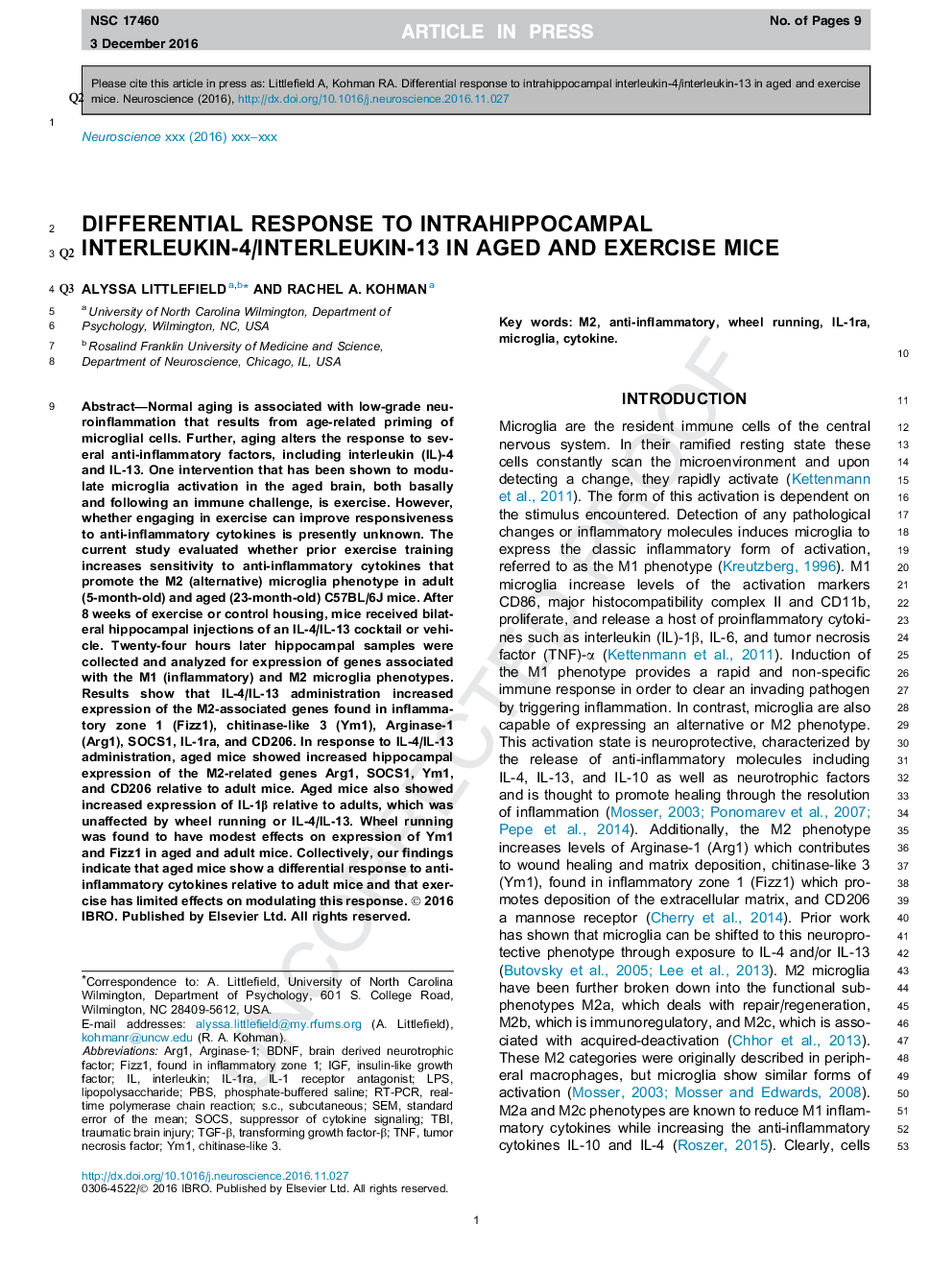| Article ID | Journal | Published Year | Pages | File Type |
|---|---|---|---|---|
| 5737854 | Neuroscience | 2017 | 9 Pages |
Abstract
Normal aging is associated with low-grade neuroinflammation that results from age-related priming of microglial cells. Further, aging alters the response to several anti-inflammatory factors, including interleukin (IL)-4 and IL-13. One intervention that has been shown to modulate microglia activation in the aged brain, both basally and following an immune challenge, is exercise. However, whether engaging in exercise can improve responsiveness to anti-inflammatory cytokines is presently unknown. The current study evaluated whether prior exercise training increases sensitivity to anti-inflammatory cytokines that promote the M2 (alternative) microglia phenotype in adult (5-month-old) and aged (23-month-old) C57BL/6J mice. After 8 weeks of exercise or control housing, mice received bilateral hippocampal injections of an IL-4/IL-13 cocktail or vehicle. Twenty-four hours later hippocampal samples were collected and analyzed for expression of genes associated with the M1 (inflammatory) and M2 microglia phenotypes. Results show that IL-4/IL-13 administration increased expression of the M2-associated genes found in inflammatory zone 1 (Fizz1), chitinase-like 3 (Ym1), Arginase-1 (Arg1), SOCS1, IL-1ra, and CD206. In response to IL-4/IL-13 administration, aged mice showed increased hippocampal expression of the M2-related genes Arg1, SOCS1, Ym1, and CD206 relative to adult mice. Aged mice also showed increased expression of IL-1β relative to adults, which was unaffected by wheel running or IL-4/IL-13. Wheel running was found to have modest effects on expression of Ym1 and Fizz1 in aged and adult mice. Collectively, our findings indicate that aged mice show a differential response to anti-inflammatory cytokines relative to adult mice and that exercise has limited effects on modulating this response.
Keywords
PBSFIZZ1LPSTGF-βTNFIGFTBIYm1IL-1RASOCSs.c.RT-PCRARG1BDNFArginase-1Traumatic brain injuryIL-1 receptor antagonistinterleukintransforming growth factor-βstandard error of the meansubcutaneoussuppressor of cytokine signalingCytokineAnti-inflammatorybrain derived neurotrophic factorInsulin-like growth factortumor necrosis factorlipopolysaccharidePhosphate-buffered salineSEMMicrogliareal-time polymerase chain reactionwheel runningfound in inflammatory zone 1
Related Topics
Life Sciences
Neuroscience
Neuroscience (General)
Authors
Alyssa Littlefield, Rachel A. Kohman,
